Latin America’s Rightward Shift Continues In Honduras
Honduras’ newly elected president, Nasry Asfura of the conservative National Party, was sworn in on January 27, 2026. The election, held on November...
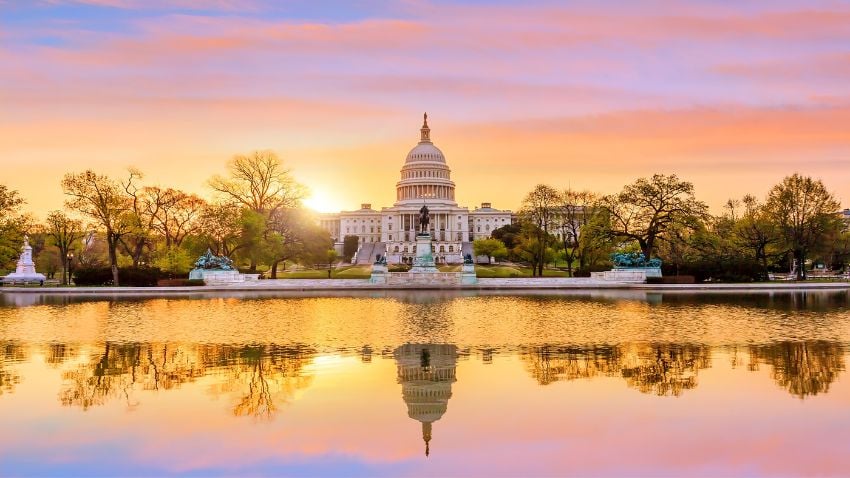
6 min read
Have you ever considered the consequences of your government turning against you? It's a query few of us are willing to consider, but it has become increasingly pertinent in our present-day society. Understanding the pathways of protecting assets from corrupt governments is the best thing you should do if you want to safeguard your wealth.
This isn't just another fear-mongering article though; instead, this is your map through the murky waters of Protecting Assets from Corrupt Governments. You'll learn the importance of flag theory and how you can reduce sovereign risk or why some are even considering renouncing their US citizenship for better safeguards.
We're all passengers aboard this grand journey of life, sharing experiences and learning from each other as we navigate through the highs and lows. It's an exciting adventure filled with unexpected turns that often lead to profound growth.

The Freedom Train
A series of protests and roadblocks in Canada called the Freedom Train (French: Convoi de la Liberté) by its organizers were carried out by truck drivers in 2022.
The convoy headed from Toronto towards the capital in Ottawa, against the requirement for a COVID-19 vaccine passport for these professionals crossing the border with the United States, introduced by the Canadian government on January 15, 2022.
It didn't take long for people to start making donations to the truck drivers who were protesting, not just in cash, but in food, warm clothing and basic hygiene items. This protest bothered the country's authorities, and the government decided to block the bank accounts of people involved in the protest. One of the solutions so that supporters of this cause could continue donating was to donate through Bitcoin. Therefore, the government could not freeze these accounts or even have access to the wallets.
When your money is all in banking institutions, where the government can arbitrarily prevent access to your money (as if taxes weren't enough), you can have all your rights as an individual violated. You don't need to be a criminal for this to happen; just question any government decision, and you will be subject to these measures. That is why it is extremely important that you know how to protect your assets so that other civil rights that you have are not taken away.
What happens when your assets are frozen? Well, life gets pretty tough pretty quickly. You might be unable to pay bills or buy essentials – all while you're trying to fight off an unjust label of 'terrorist' imposed by your own government.
This overreach doesn't stop at individual citizens either; businesses also feel the chill. Imagine working hard for years, building up a successful business, only for it to crumble overnight because of sudden asset freezes.
In recent times, we've seen how governments can wield unprecedented power under the guise of 'protecting the public health'. Peaceful protesters have been targeted and their civil rights violated, with their financial accounts frozen without due process or transparency.
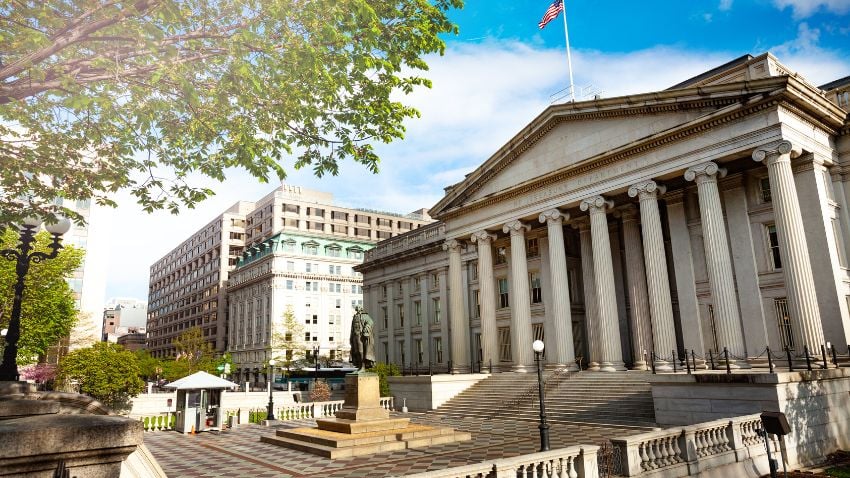
International Assets Regulatory Board, Washington
A new phenomenon is afoot, and it's not the customary one. It appears that North America is slowly but surely embracing socialism. We see this through increasing debt, inflation rates going haywire, and looming financial catastrophes.
U.S. Debt Clock, an independent service providing real-time data on U.S. public debt, shows staggering figures exceeding $34 trillion USD in the day this is being written - numbers beyond comprehension for many of us. But what does this mean? Well, simply put, the higher the national debt, the more likely governments are to increase taxes or print money out of thin air (hello inflation), both key indicators of socialist tendencies.
Having all your eggs in one basket isn't wise when planning Easter egg hunts – nor is it clever with asset management. The risks of holding all assets within a single country and currency can be detrimental due to sovereign risk exposure.
This term refers to a nation’s inability (or refusal) (ahem...Argentina 2001) to meet its loan obligations. When such scenarios play out on home soil where your wealth resides exclusively - let’s just say things could get messy quickly.
Sovereign defaults often lead countries into economic recessions or depressions;
Inflation tends to rise dramatically as governments attempt monetary easing policies which devalue their currencies;
National bankruptcy results from failing economies, causing investment values to plummet overnight like apples off trees during stormy weather.
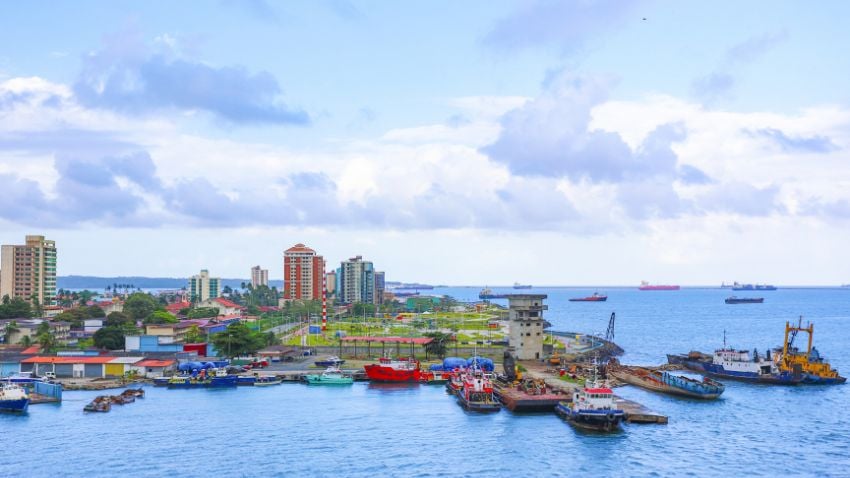
Atlantic Entrance to Panama Canal
As economic uncertainties grow, savvy individuals are looking towards flag theory. This strategy is not about physical flags or territory conquests; rather, it's an approach to global diversification that offers asset protection against sovereign risk.
In the realm of international finance and wealth management, "flag theory" refers to strategically spreading your assets across different jurisdictions globally. The objective? To mitigate risks tied with holding all your eggs in one governmental basket.
The core principle behind flag theory lies in its strategic separation of key aspects of personal life and financial interests across various countries. It includes distributing elements like citizenship, residency, banking and investments over several nations where laws favour foreign investors.
A study from BCG Global Wealth Report 2023 revealed that high-net-worth individuals increasingly resort to global diversification strategies, including offshore accounts.
When you plant flags internationally by opening bank accounts or investing in property abroad, you're protecting yourself from potential political instability at home.
You reduce the chance of losing everything if there’s a sudden currency devaluation - because some part of your wealth is held elsewhere;
If local authorities freeze bank accounts due to questionable policies or charges – having funds accessible overseas can be lifesaving.
Related content: What Is Flag Theory And How Can It Help You Secure Your New Life Abroad?
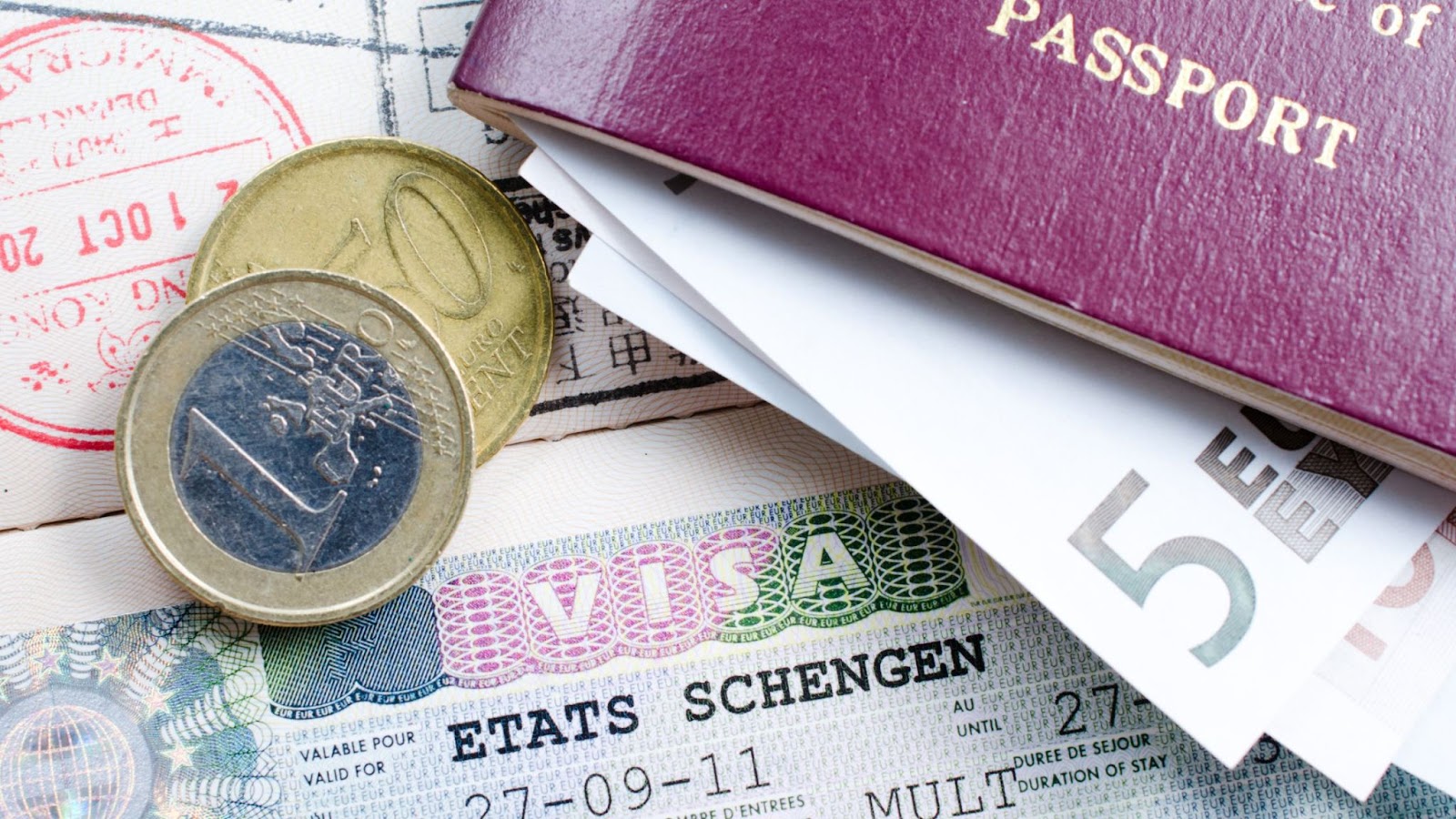
In addition to investing offshore, obtaining a second passport is one of the ways you can protect your family and assets
While many view transferring wealth to foreign nations as a way for the affluent to avoid taxation, it's essential to realize that permissible tax minimization is not equivalent to illegal tax avoidance.
When it is done right, flag theory falls within international law. It’s important to hire experienced financial advisors and lawyers who are well-versed in international regulations. They can guide you through each step while ensuring all actions comply with local laws and international treaties.
To fully understand this choice, we need to consider what’s at stake: financial autonomy versus loyalty to the country. According to the Brookings Institute, high net-worth individuals often have diversified international investments — these become more complicated under the US global taxation policy.
Moreover, financial privacy is another factor. The Bank Secrecy Act mandates US citizens to report foreign accounts and assets over a certain threshold. Some find this intrusive and prefer renouncing citizenship for more financial discretion.
Apart from emotional ties, there's also an immediate monetary cost — the exit tax or expatriation tax. This one-time payment calculated on net worth might seem hefty, but many consider it as buying freedom from future global income.

Protecting your assets has never been more important than it is today, especially when governments have access to all your banking transactions
In an increasingly uncertain world, protecting your wealth from potential threats has never been more critical. From political instability to economic downturns and even the whims of potentially corrupt governments, the dangers are real.
But what can you do about it? Let's delve into some practical strategies that might help protect your hard-earned assets from being unfairly seized or diminished.
We are in a period of speedy transformation where financial stability could be weakened abruptly. Whether it’s an unexpected policy change or sudden tax hikes, these uncertainties make asset protection both necessary and urgent.
In this context, sitting on one’s hands is no longer an option; action must be taken promptly. Waiting for 'the right time' could lead to regrets later down the line when unforeseen changes hit home. International diversification, for instance, allows individuals to spread their risk across multiple jurisdictions and currencies – making them less vulnerable to single-country economic shocks or confiscatory policies at home.
To paint a clearer picture, imagine if all your eggs were placed in one basket—this situation inherently exposes you to high levels of risk should anything happen to that singular basket. Similarly, holding all assets within a single country's jurisdiction equates to placing too much faith (and risk) into its stability—a gamble many prudent investors wouldn't want to take given today's volatile climate. This analogy emphasizes why immediate action towards asset protection cannot be stressed enough.
Sovereign risks arise due largely to the potential for governmental instability or changes in policy that could negatively impact your assets. Diversifying your holdings globally is a viable strategy to mitigate these risks.
Flag theory can be an effective way of doing this—it involves spreading different aspects of one's life across multiple jurisdictions, reducing exposure to any single government’s potentially harmful actions. For instance, you might hold financial assets in Switzerland, maintain a residency status in Portugal and run a business out of Singapore.
Although it might seem tricky at first, once you've got it set up right, global diversification can offer some real benefits.

Take the government out of your money and discover ways to take back your freedom
Guarding your wealth isn't just smart; it's crucial. Protecting assets from corrupt governments requires knowledge and action. Don't let government overreach catch you off guard; stay informed about your civil rights.
Beware the shift towards socialism in North America and the risks of single-country asset holding. Spread out your investments to lessen sovereign risk.
Flag theory is not a buzzword but a strategy for survival amidst economic uncertainty. Consider its legalities and opportunities seriously.
The urgency can’t be overstated: act now to secure your future against unpredictable shifts in political climate or potential financial catastrophes.
If you want the best intel from the expat world, including profitable offshore opportunities, little-known tax-saving strategies, and hard-won insights on immigration, passports, and Plan-B residencies, all delivered to your inbox every single week, then join our daily correspondence, EMS Pulse®. Currently enjoyed by over 84,000 expats and expat-hopefuls worldwide. Fill in the form below to join our newsletter free:

Written by Mikkel Thorup
Mikkel Thorup is the world’s most sought-after expat consultant. He focuses on helping high-net-worth private clients to legally mitigate tax liabilities, obtain a second residency and citizenship, and assemble a portfolio of foreign investments including international real estate, timber plantations, agricultural land and other hard-money tangible assets. Mikkel is the Founder and CEO at Expat Money®, a private consulting firm started in 2017. He hosts the popular weekly podcast, the Expat Money Show, and wrote the definitive #1-Best Selling book Expat Secrets - How To Pay Zero Taxes, Live Overseas And Make Giant Piles Of Money, and his second book: Expats Guide On Moving To Mexico.

Honduras’ newly elected president, Nasry Asfura of the conservative National Party, was sworn in on January 27, 2026. The election, held on November...

For a growing number of Americans, cost-of-living math no longer works. Housing feels harder to reach, everyday costs keep climbing, and long-term...
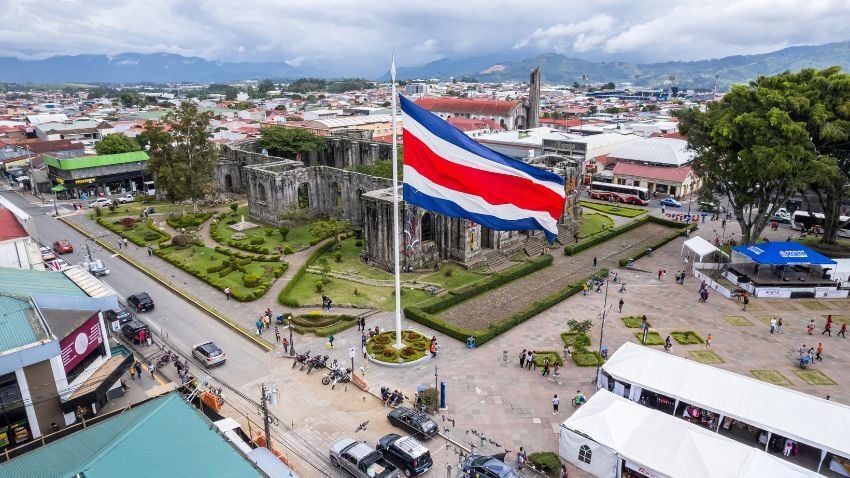
Costa Rica has become one of the most popular expat and digital nomad destinations in Latin America, known for its natural beauty, relaxed lifestyle,...